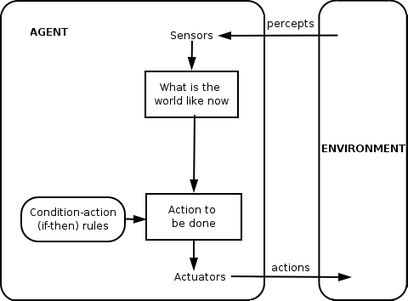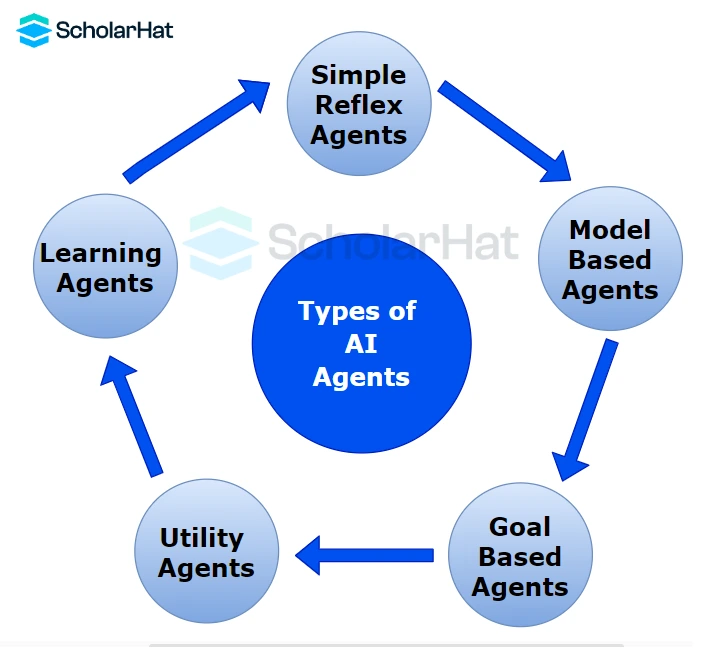Top Advice To Selecting An AI Agent Site For Business
Top Advice To Selecting An AI Agent Site For Business
Blog Article
Businesses Can Improve Their Financial Operations By Using Ai-Powered Agents To Improve Accounts Receivable.
Ten methods AI agents can help improve accounts receivable (AR), a financial business operation:
1. Automated bill generation and delivery
AI agents can automatize the process of invoicing by:
Automatically generate invoices on the basis of orders and contracts, or milestones that have been completed.
Sending invoices to customers via preferred channels, such as email or through integrated portals.
2. Intelligent Payment Reminders
AI enhances collection efforts by:
The sending of personalized reminders for payments is based on customer behavior.
Reminders that are timed strategically can improve the chances of timely payments.
3. Analysis of predictive payment behavior
AI analyzes customer data to:
What time frame will customers be able to pay?
Mark the accounts that could be late in paying, for active surveillance.
4. Real-Time Credit Risk Assessment
AI reduces credit risk through:
The assessment of creditworthiness for customers is done in real time.
On the basis of past financial records, provide credit limit and other conditions.
5. Automatic Cash Application
AI speeds up the payment process by:
Automatically match invoices with payments regardless of discrepancies.
Cash reconciliation can be automated to decrease the manual work required.
6. Improved Dispute resolution
AI assists in resolving AR disputes quickly through:
Recognizing discrepancies in invoices or in payments.
Automating the collection of supporting documentation for faster resolution.
7. Dynamic Aging Reports
AI gives actionable AR insight by:
Monitoring the aging of accounts in real time.
Highlighting the most important collections to the AR team.
8. Dunning Strategies Improved
AI customizes follow-up processes by:
Incorporating tiered increased penalties for accounts that are late.
Communication tone and frequency can be adjusted based on the patterns of response from the customer.
9. Fraud Detection and Payments
AI identifies anomalies by:
Monitoring for unusual behavior in payments for instance, suspicious overpayments and account activity.
Finding out if there is a fraud that warrants investigation.
10. Integration into Financial Systems
AI assures smooth data flow through:
The process of synchronizing AR data to ERP, CRM and accounting software.
A single source of information about balances on customer accounts and balances, as well as payments.
AI agents automate and optimize AR processes to assist businesses increase their cash flow while reducing operational costs. This improves the financial health of an organization. View the top rated AI agent for Budgeting for site recommendations including AI agent for ticket escalation, AI agent for supplier relationship management, AI agent for legal compliance, AI agent for discount verification, AI agent for information security management, AI agent for purchase order management, AI agent for sales, AI agent for clause analysis, AI agent for human resources, AI agent for document management and more.
10 Ways Companies Can Make Use Of Ai Agents To Detect Fraud And Manage Risk
AI can be used to detect fraud in financial transactions and to manage risk. Here are 10 methods to do this.
1. Real-Time Transaction Monitor
Artificial intelligence agents are able to detect fraud by:
Monitoring of financial transactions continuously real-time.
It is crucial to flag transactions that are not in line with the typical patterns. For instance, unusually large payments or transactions, or transactions occurring at a rapid speed, must be flagged.
2. Anomaly The detection
AI can spot unusual behaviors.
Machine learning algorithms are utilized to analyse transactional data from the past to identify anomalies.
Recognizing patterns, such as repeated non-payments or sudden spikes of spending that could indicate fraud.
3. Predictive Risk Assessment
AI can be used to forecast future risks.
Analyzing data from the past to assess the probability that specific financial risks or fraudulent activities will take place.
Accounts that are flagged and transactions that are in line with high-risk profiles based on previous incidents.
4. Behavioral Biometrics
AI agents can analyze the user's behavior by:
Monitoring how users interact with financial platforms.
It is crucial to spot any unusual or inconsistent behavior that could indicate identity theft or unauthorised access.
5. Automatic Alerts for Suspicious Actors
AI offers instant alerts by:
Notifying the risk supervisor or the compliance officer when suspicious activities are detected.
Automated workflows, such as account locking out, or fraud investigation.
6. Credit Scoring and Fraud Risk
AI helps to determine the creditworthiness of customers through:
Analyzing the history of financial transactions and conduct of customers to identify defaults or fraudulent acts.
Businesses can manage their risk when it comes lending or payment terms through the use of dynamic credit scores that adjusts in real time based upon activities.
7. Natural Language Processing (NLP) for Document Fraud Detection
AI can identify fake documents by using:
Scanning invoices, contracts, as well as other financial records for inconsistencies, forged signatures, or altered data.
NLP algorithms can be utilized to detect inconsistencies between text and context, which could signal fraud.
8. Screening vendors and customers
AI can assist in preventing fraud by:
Background checks are conducted on vendors and customers using AI-driven analysis based on public records, financial history and social media profiles.
Use flags to identify high-risk entities that need closer scrutiny before moving forward in a contract or transaction.
9. Compliance Monitoring
AI assures compliance with regulations is achieved by:
Constantly check financial operations for compliance with current regulations.
Automating audits or reports could aid in ensuring compliance with the law, helping companies identify and stop financial misconduct.
10. Machine Learning for Fraud Detection Improvement
AI agents are getting better as time passes in:
Machine learning allows for the adaptation of new fraud tactics.
Continuously training on new data to refine fraud detection algorithms and decrease false positives.
By incorporating AI into fraud detection businesses can safeguard their assets, maintain compliance and improve operational efficiency. Check out the recommended AI agent for Treasury Operations for blog info including AI agent for contract management, AI agent for credit management, AI agent for treasury management, AI agent for customer order processing, AI agent for payment status update, AI agent for incident response documentation, AI agent for resume screening, AI agent for it operations, AI agent for credit memo application, AI agent for supplier diversity tracking and more.
Ai Agents - 10 Ways They Can Assist Businesses In Reducing Expenses
AI agents are able to reduce the cost of financial transactions.
1. Automating Routine Activities
AI agents can perform repetitive tasks by:
Automating manual processes such as the processing of invoices, input of data and match between transactions frees up valuable employee time.
The reduction of the human resource required to complete the routine work. This can reduce operating costs.
2. Enhancing Accuracy and reducing Errors
AI reduces the costs of human errors through:
Avoiding errors made by hand, like incorrect calculations or data entry errors that could result in expensive penalties or corrections.
This will ensure greater accuracy in financial reporting, invoicing, and reconciliations and reducing the expense of rework or fines.
3. Optimizing Cash Management
AI increases cash flow through:
Knowing the cash flow gap and recommending ideal timings for payment or collection can help you avoid late fees. You will also miss out on discounts for early payments.
The capability to decrease cash flow pressure and prepare for seasonal variations is enhanced through the identification of trends in historical payment data.
4. Enhancing Expense Management
AI aids in managing and reducing costs.
Automatically tracking, categorizing, and analyzing expenditures and identifying areas where expenses can be cut or optimized.
Suggesting cost-saving measures such as negotiation of better terms with vendors or identifying the expenses that aren't performing.
5. Financial reporting can be simplified
AI lowers the cost of reporting by
Automatically create financial reports that are in line with accounting standards, eliminating the need to prepare manual reports.
Speeding up the process of creating reports This allows decision makers to act swiftly without spending resources on prolonged report creation.
6. Fraud Prevention and Detection
AI assists in reducing fraud-related cost by:
Continuously monitoring transactions for suspicious activity, you can reduce the risk of financial fraud.
Automating fraud-detection processes will minimize the costs associated with manual investigations, as well the possibility of financial losses resulting due to fraud.
7. AI-driven predictive analytics
AI can reduce costs by:
Predictive analytics is utilized to find inefficiencies, such as overstaffing, underutilization or underutilization. Then, they recommend changes.
Predicting trends and behaviors in the future allows companies to take strategic business decisions that will cut down on waste, increase expenditure and reduce costs.
8. Optimizing Vendors Payments
AI aids in reducing costs related to vendors by:
Analyzing the history of payments and recommendations on the most appropriate time to negotiate payment terms, or to benefit from early discount on payments.
Automatically identifying and resolving discrepancies in vendor invoices, which can reduce the cost of manual reconciliation and payment delays.
9. Automating Compliance and Regulatory Tasks
AI reduces compliance costs by:
Automating tasks for regulatory reporting and auditing ensures timely compliance, while requiring lesser manual interventions.
Through automatizing the process of ensuring compliance we can cut down on penalties and fines that may result from late or inaccurate reports.
10. Better Resources Allocation and Decision Making
AI assists in better resource allocation through:
Data-driven insight that helps optimize financial operations, including the decision to budget and invest.
Identifying those areas that are the most lucrative for investment, and reducing unprofitable or inefficient spending.
AI agents are an excellent option to reduce costs, increase efficiency and decrease the risk of making mistakes. This leads to a better financial health and long-term savings. Follow the top AI agent for Supplier Relationship Management for website examples including AI agent for dispute resolution, AI agent for cash flow management, AI agent for tax management, AI agent for service survey collection, AI agent for talent acquisition, AI agent for contract compliance, AI agent for billing compliance management, AI agent for customer account management, AI agent for vendor selection, AI agent for chat transcription and more.